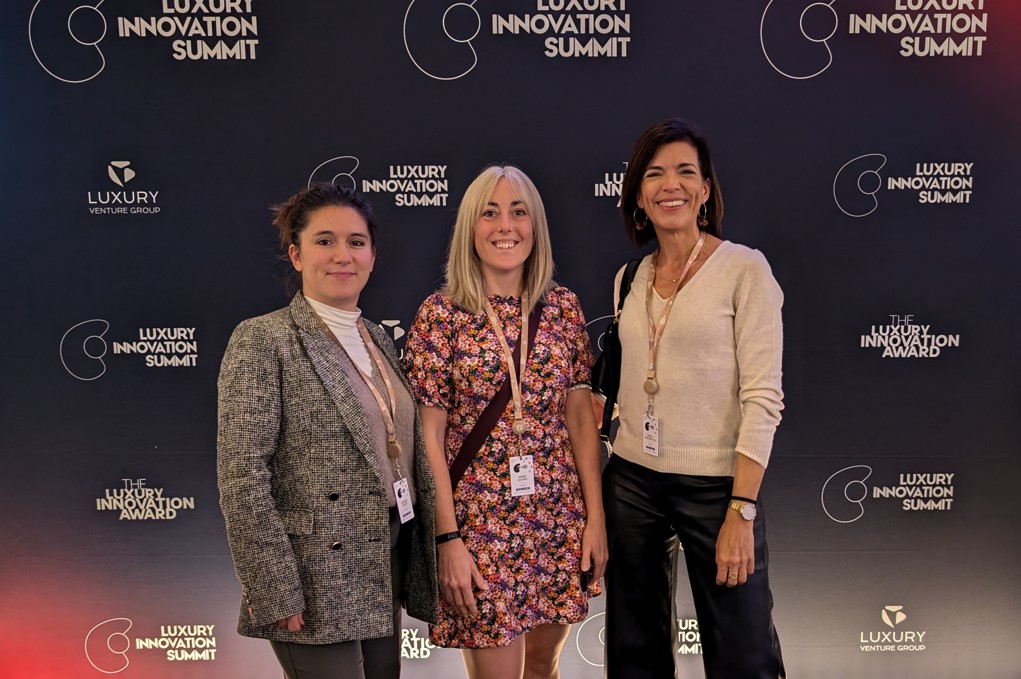Geneva provided the stage for this year’s Luxury Innovation Summit.
Representing Hyphen, Aimee Hooper, Carole Netzer and Paula Martinez Vila all travelled to Switzerland to network with industry colleagues and explore the latest developments in the luxury market. Luxury is an industry that has experienced several changes in the last few years as brands adapt to a new generation of customers, so it has been really interesting to learn more about how that is impacting not only design, but also other areas of business.
Talking points
The dominant themes related to the new luxury customers – generation z and generation alpha –and how they are pushing the industry out of their traditional boundaries, towards digital transformation, enhanced customer experience, and sustainability.
GenZ and GenAlpha don’t necessarily recognize a difference between the physical and digital. They don’t shift from one to other, both are a big part of their daily lives. This is a new way of communication between luxury brands and their clients, which is driving digital innovation and brand strategy. The event had a strong discussion line around digital transformation in the industry and how new technology implementation, such as the use NFTs, gaming, generative AI, blockchain, metaverse and Web3, can enhance the customer journey and brand experience.
Discussions on sustainability included how luxury clients can protect the legacy of their brands and offer extra value to the community and environment. The new generations fully embrace the circular economy and with this there are new opportunities and potential challenges for luxury brands.
Our key takeaways:
• Balancing long-term brand heritage and digital innovation is key for luxury
• Digital Transformation is reshaping industry standards.
• The circular economy is part of the new generations DNA, therefore a business imperative for luxury brands.
• Younger luxury consumers increasingly demand hyper-personalised experiences.
• Localisation versus centralisation – luxury brands need to consider different cultural values and tastes due to the rise of new wealth in emerging markets.
• The second-hand luxury market is booming, driven by the circular economy and sustainability concerns.


